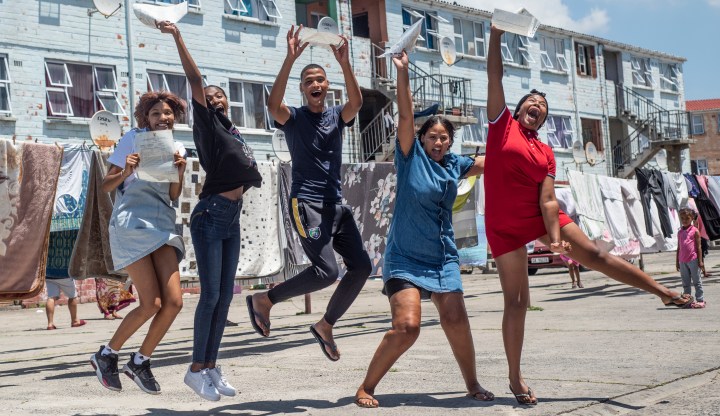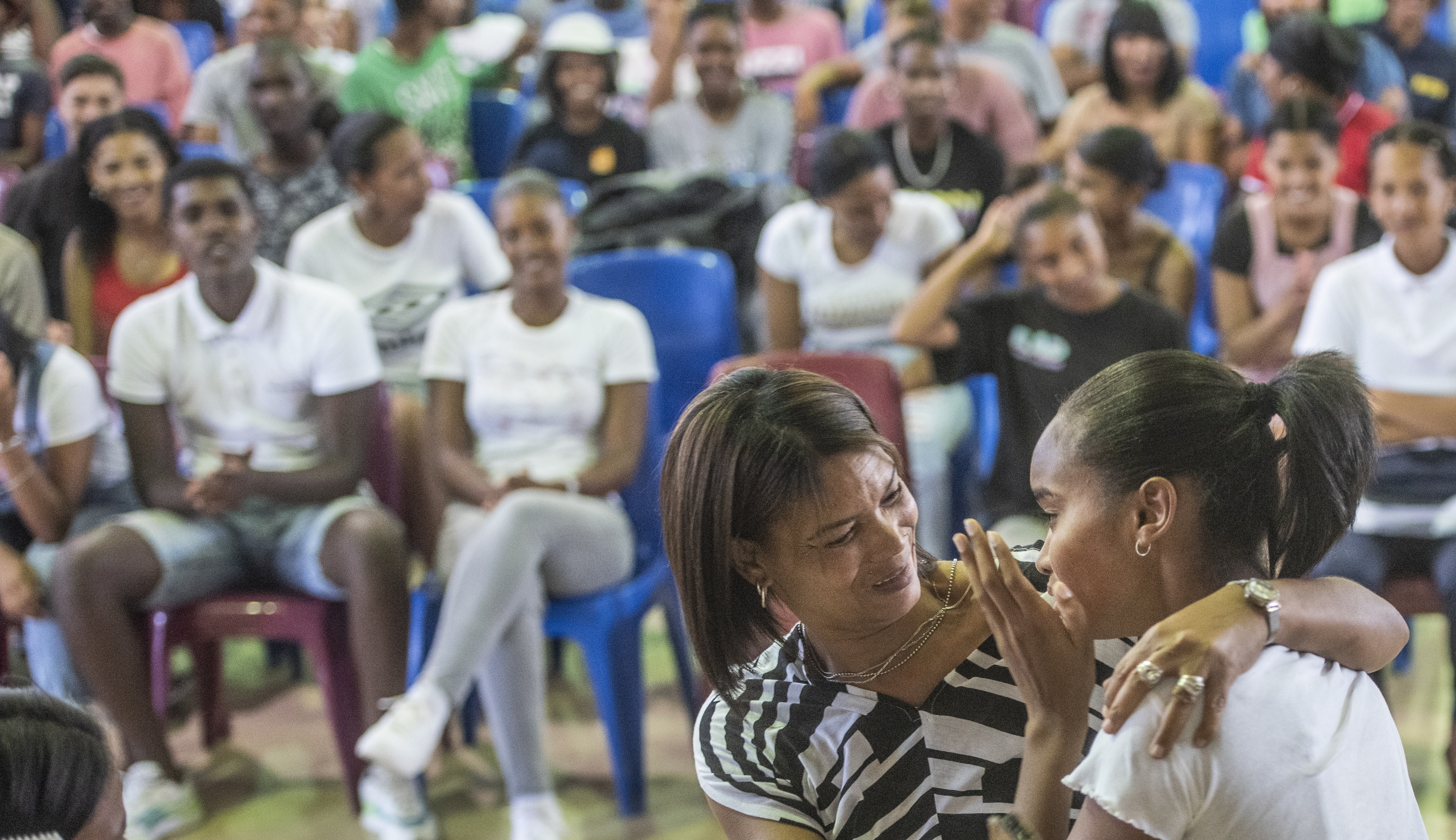NSC RESULTS
Matric Class of 2022 should be celebrated, but results not accurate ‘barometer’ for education system — experts

The 80.1% pass rate achieved by the matric class of 2022 is a testament to their resilience and determination in the face of challenges. However, it is far from a holistic representation of the state of South Africa’s education system.
“We definitely want to celebrate the matric class of 2022 – the learners who have dedicated themselves to completing the year so strongly. I think it’s really a testament to the kind of commitment that young people in this country have to their education.”
These were the words of Merle Mansfield, programme director at the Zero Dropout Campaign, in the wake of the announcement of the NSC results on Thursday, 19 January. The much-anticipated results showed an 80.1% pass rate for last year’s matric pupils.
Read in Daily Maverick: “Matrics bag 80.1% pass rate — A visual gauge of the 2022 National Senior Certificate results”
“I’m always astounded by how resilient and committed young people are, that they come back in the face of huge challenges… and they try their utmost best to succeed,” said Mansfield.
The 2022 pass rate shows an increase of 3.7% from the previous year. Prof Nadine Petersen, executive dean of the Faculty of Education at the University of Johannesburg, attributed the increase to a “multiplicity of factors”, including the resilience of children; the support of teachers and district officials; and caregiver support.
“Support initiatives are also getting better as the DBE (Department of Basic Education) is improving on its interventions on an annual basis,” she said.
Challenges overcome
The 2022 matriculants, the majority of whom were in Grade 10 when the Covid-19 pandemic broke out, bore the brunt of pandemic-related interruptions, according to Stacey Jacobs, researcher at Equal Education.
“They lost out on face-to-face teaching time. When they returned to school, they needed to do a lot of catch-up and revision… and then we had the load shedding, which disrupted their studying and preparation time… and also disrupted some exams,” she said.
Read in Daily Maverick: “Rolling blackouts a big worry as matrics set to write final examinations”
Nic Spaull, associate professor of economics at Stellenbosch University, expressed concern about the lack of transparency from the Umalusi Council regarding how it was handling Covid-19 learning losses and ensuring consistency in matric exam difficulty across years. Umalusi is the council that sets and monitors standards for general and further education and training in South Africa.

Lavender Hill top student Jade Lippert is congratulated by her mother Gwen. (Photo: Brenton Geach)
“The class of 2022 was the most affected by Covid and yet, in the Umalusi statement about standardisation, they don’t mention Covid at all,” said Spaull. “The usual practice of using a five-year rolling average to adjust marks doesn’t work when there are major disruptions affecting a cohort (like school closures and multi-year learning losses).”
Matrics also experienced province-specific disruptions, such as the floods in KwaZulu-Natal (KZN) that left many displaced and destitute in April 2022.
“That undoubtedly affected learning there, which is why the announcement made by Minister [of Basic Education] Angie Motshekga that KZN saw the biggest improvement is really great, but that’s looking at the traditional classrooms alone,” said Jacobs.
Motshekga identified KZN as the best-improved province in her announcement of the NSC results on Thursday. The province achieved a pass rate of 83%, an increase of 6.2% from 2021, and was ranked third overall.
Throughput rate
Jacobs pointed out that the pass rate in the various provinces, and nationally, did not take into account the throughput rate. At Equal Education, the throughput pass rate for the class of 2022 is calculated as the number of matric passes as a percentage of Grade 2 enrollments in 2012.
Visit Daily Maverick’s home page for more news, analysis and investigations
“Minister Motshekga announced an 80.1% pass rate. The throughput rate… that’s sitting at 56% and that is still not ideal,” she said.
“When we think of KwaZulu-Natal achieving the greatest improvement, I think we should also have a look at their throughput rate and try and decipher from there what a better indicator of the health of that education system is.”
Spaull questioned why the Department of Basic Education did not report the throughput pass rate given the data available to it.
“The Free State is not the best-performing province in the country — the only reason they have a high matric pass rate is that they have much higher dropout rates in Grades 10 to 12,” he said.
“Whether this is intentional or not doesn’t detract from the fact that if you measure the throughput pass rate (i.e. the number of matric passes as a percentage of Grade 8 enrolments five years earlier) then the Free State does much worse.”
The Free State was reported as having a matric pass rate of 88.5% — 2.8% higher than last year.
Matric results are not an accurate “barometer” when it comes to measuring the health of the education system, according to Mansfield. Rather, the results are a way to track how pupils are handling the high-stakes final exams.
“The pouring of resources… into the matric year is commendable but for me unsustainable,” said Petersen.
“If we only consider the matric results without taking cognisance of the dropout rate from Grade 1, the quality of the passes… [and] the results of tests on numeracy and literacy in the early years, then this is a flawed way of looking at the state of the education system. It should be a holistic and systemic view.”
On dropout and second chances
Motshekga announced that 775,000 pupils of the 1.18 million who entered formal learning in 2011 reached Grade 12. Of those who reached matric, 96% wrote the NSC examinations.
“I think that we have had an upward trend in terms of school completion within South Africa… year after year, and I think that that’s wonderful. I don’t think it’s fast enough,” said Mansfield.
There is a need to capture better data around learner throughput, she continued, as it is not clear where learners are getting stuck — whether they are sitting in cycles of repetition at particular grades, or have dropped out of the school system completely.
“There are lots of nuances to the data that we wish our education system would be able to articulate more intentionally so that we can put some interventions in place,” she said.
“We still have a large proportion of… marginalised black children who are not getting to the matric exam… It’s still incredibly difficult to get there and it shouldn’t be.”
Research by NPO Youth Capital indicates that at any given time, there are 250,000 young people working towards a matric certificate outside the full-time schooling system, according to Kristal Duncan-Williams, project lead at Youth Capital.
“Certification is a roadblock on young people’s journey to achieving economic productivity; as such, access and support for second chance pathways need to be expanded, and celebrated as much as the matric results,” she said.
Those who did not receive the matric results they expected are able to rewrite NSC exams by registering for the DBE’s Second Chance Programme, explained Duncan-Williams. A matric re-write hub, created by Youth Capital in partnership with SAYouth, allows young people to access consolidated information about the programme on a data-free platform.
“The fact is that many young people work towards a matric certificate after having failed or dropped out of school, meaning that they are doing so on their own, outside of the full-time schooling system. This is a testament to their grit,” said Duncan-Williams.
“Last night, Minister Angie Motshekga celebrated the ‘unquestionable resilience’ of learners, but we urgently need to provide learners with relevant support, beyond celebrating their determination.” DM/MC



















 Become an Insider
Become an Insider
When you have a bloodbath of failure in Soweto schools as a result of the black outs by Eskom we have tickey experts coming along calling for celebration and the question is what is this that we ought to celebrate. Eskom and SADTU have combined to produce very horrible results in Soweto schools. Some of us are at this stage looking at what interventions can be done to actually salvage the abominable failure rate this year. We are talking to private sector people to help with extra classes through unemployed graduates. Since yesterday some amongst us have been calling each other about the dire situation in Soweto that can lead to many other social ills. We would want to know what constitutes expertise with such a high failure rate or whether the clowns have looked at the Soweto schools as a whole where some schools are in the main between 0% and 12%. You call that a pass rate. It is a joke.
Our educators are bluffing themselves. We are still near the bottom of the world n most aspects of education.
Did they do better because they worked at home during covid and not at school?